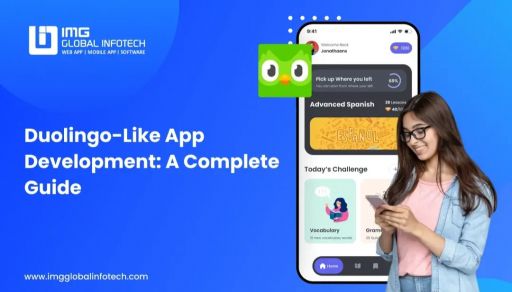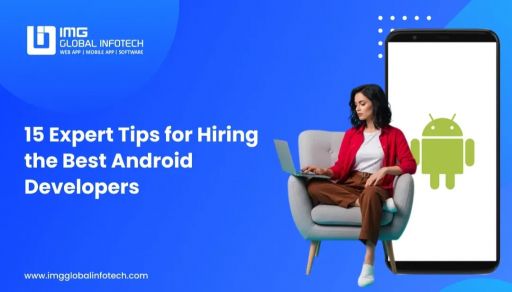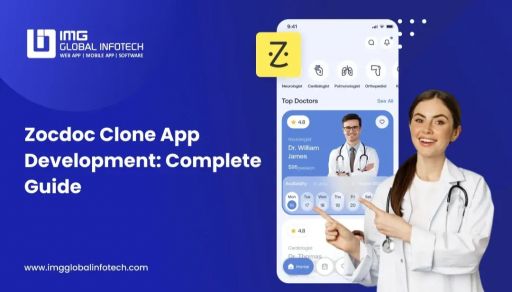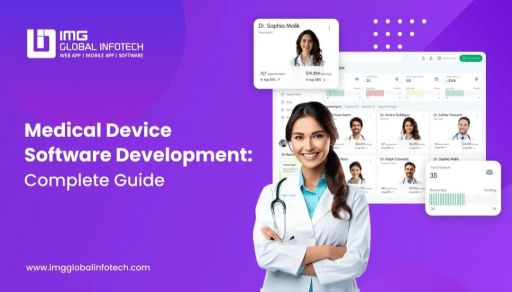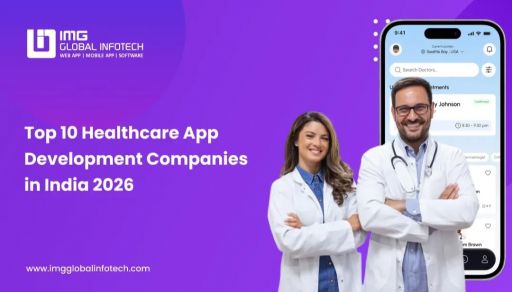Top 20 Mobile App Development Trends 2026
Lokesh Saini
Jul 08, 2025

The mobile app development industry is evolving faster than ever. As we step into 2026, a wave of transformative technologies and shifting user expectations is redefining how mobile apps are built, designed, and experienced. From the widespread adoption of 5G to the deeper integration of AI, motion design, and immersive AR/VR interfaces, mobile apps are no longer just utilities, they're becoming intelligent, dynamic, and central to our daily digital lives.
For businesses, developers, and tech innovators, staying ahead of these changes isn't optional, it's essential. Understanding the latest mobile app development trends in 2026 will help you future-proof your digital strategy, enhance user engagement, and build applications that deliver real value in a competitive market.
In this blog, we explore the most emerging mobile app development trends to watch in 2026 and how they’re shaping the future of mobile app development technology.
Latest Mobile App Development Trends 2026
As we enter 2026, mobile apps continue to reshape business models and user behavior. For startups looking to disrupt markets, enterprises aiming to scale, and tech agencies building innovative solutions, understanding the latest trends in mobile app development isn't just helpful, it's business-critical. Below, we’ve broken down the most relevant mobile app development trends that decision-makers and mobile app developers need to watch this year.
1. AI and ML Integration
Startups are using AI to automate customer support and personalize onboarding. Enterprises leverage machine learning to forecast demand, while tech agencies build advanced AI-powered tools for real-time analytics. With generative tools and AI app development in content creation, image editing and AI chatbot flows, we can expect everything at one place. AI-backed recommendation engines for eCommerce apps or smart fitness assistants that adapt routines based on user performance.
2. 5G Technology
With 5G becoming more accessible globally, mobile apps can now offer richer experiences with low latency. This opens doors for AR-based navigation, cloud gaming, and buffer-free video streaming. For mobile app startups and agencies, 5G means faster MVP rollouts with advanced features. Enterprises can scale bandwidth-intensive services like virtual events or real-time collaboration tools without compromising performance.
3. Rise of Super Apps
Borrowing from models like WeChat and Grab, startups are launching super apps that combine chat, shopping, payments, and services in a single platform. Enterprises are also consolidating multiple internal tools into one streamlined mobile app for employees. Tech agencies can pitch modular super app architectures, offering clients faster market penetration and improved user retention.
4. Edge Computing in Mobile Apps
Rather than relying on separate cloud servers, edge computing brings processing closer to users, on the device or local nodes. This improves app responsiveness and reliability, especially in regions with poor connectivity. Mobile app development Startups in logistics or delivery can process route updates instantly. Enterprises in manufacturing or field services can deploy mobile apps that work even in offline or remote areas.
5. Progressive Web Apps (PWAs)
PWAs provide the look and feel of react native apps with the lightweight advantages of web technologies. For budget-conscious startups and enterprises targeting multiple platforms, PWAs offer a faster and cost-effective alternative to full-fledged native mobile app development. PWAs provide no app store dependency, lower app development costs, and offline functionality ideal for scaling quickly.
6. IoT-Enabled Mobile Applications
Whether it’s smart homes, connected cars, or industrial IoT, mobile apps are now the primary interface for controlling devices. Startups are building connected fitness gear; enterprises are managing warehouses with smart sensors via apps. Security, real-time updates, and reliable device communication are key deliverables for tech agencies working in this space.
7. AR & VR Expanding Beyond Games
In 2026, AR and VR mobile app trends are finally becoming more than a novelty. Startups in edtech, real estate, and healthcare are building immersive experiences to visualize products, conduct remote training, or simulate surgeries. A real estate app development company could offer AR walkthroughs of properties, while retailers can use virtual try-ons directly through their mobile app.
8. Motion Design: Microinteractions That Matter
Motion design is no longer optional, it’s what makes apps feel alive. From smooth transitions to animated icons and loading indicators, motion helps communicate states and guide user actions. It matters for mobile app development companies because motion design isn’t just for aesthetics. It improves usability, onboarding flow, and conversion rates. Startups can benefit from memorable UX, while enterprises use it for app intuitiveness at scale.
9. Voice-Activated and Conversational UI
Voice search, voice commands, and chatbot-driven UIs are on the rise, especially in multilingual markets. Apps built for accessibility, smart homes, or hands-free operations will increasingly rely on voice interfaces. Startups can reach wider audiences in Tier 2/3 cities using voice-enabled UIs in regional languages. Tech agencies should prioritize multilingual NLP support.
10. Cross-Platform App Development
Startups and enterprises are opting for frameworks like Flutter and React Native to launch their app fast across Android and iOS. With community support and growing libraries, these tools are now mature enough for performance-heavy apps. Tech agencies offering hybrid app development stand to benefit from reduced timelines, reusable codebases, and lower client costs.
11. Security and Data Privacy by Design
As mobile apps collect more sensitive user data, privacy regulations like GDPR and DPDP (India) are tightening. In 2026, app security will become essential in mobile app development trends. Startups and enterprises are winning users' trust by using biometric authentication, end-to-end encryption, and compliance-first data handling.
12. Wearable App Ecosystem Expansion
Wearables are not limited to fitness bands. Various industries like healthcare, fintech, and productivity apps are syncing with smartwatches, AR glasses, and biometric wearables, updating services according to latest mobile app development trends. Agencies can help brands extend their app experiences to wearables, delivering added utility and convenience to users.
13. Blockchain-Backed Mobile Apps
Blockchain tech is powering more than just crypto wallets. Startups are using it for secure transactions, identity management, and transparent reward systems. This emerging mobile app trend is for decentralized apps (dApps) that provide traceable, tamper-proof functionality for everything from logistics to media rights.
14. Sustainable and Energy-Efficient App Design
Green tech isn't just a trending term. Users and investors alike are looking for eco-friendly apps that consume less power and optimize backend processing. Battery-optimized apps are now a competitive edge. Enterprises with ESG goals will seek agencies that prioritize sustainability in design and development.
15. Mobile Commerce Reimagined
Mobile commerce is no longer just about adding products to a cart and checking out. It's being reimagined to deliver a hyper-personalized, intuitive, and seamless shopping experience right from the palm of your hand.
With AI development trends, mobile apps are now curating product recommendations based on user behavior, mood, and even time of day. Voice-enabled search is gaining traction, especially among regional and rural users who prefer speaking over typing. Startups in D2C ecommerce apps, agencies in retail tech, and enterprises in omnichannel commerce must reimagine m-commerce strategies for better conversions.
16. Hyper-Personalization with Real-Time Data
Users now expect mobile apps to understand their needs before they even tap a button. Thanks to real-time analytics, location data, and behavioral insights, apps are now delivering highly personalized content, offers, and UX flows. Whether it's a travel app suggesting weekend getaways based on your calendar, or a fitness app adapting workouts based on your activity, personalization is no longer a bonus, it’s a baseline.
17. Gamification Across Non-Gaming Apps
Gamification is moving beyond games. From finance to fitness, learning to shopping, apps are introducing game-like mechanics to increase user retention and satisfaction. Think of daily check-in streaks, achievement badges, progress bars, or referral-based rewards systems. A learning app that offers virtual coins for completed modules, or a fintech app that levels up your financial literacy through interactive quizzes.
18. Cloud-Integrated Mobile Applications
Cloud-native development is becoming the standard for apps that need high scalability, security, and global access. Cloud integration allows mobile apps to sync seamlessly across devices and platforms, while offering real-time updates without heavy local storage needs. Startups can scale faster without investing in heavy infrastructure. Enterprises can ensure data is consistent across web and mobile portals. Agencies can build cloud-connected MVPs in record time.
19. Low-Code/No-Code Platforms
Time-to-market is more critical than ever. In 2026, more businesses are turning to low-code and no-code platforms to build functional prototypes or full apps without complex coding. Agencies are offering hybrid models, rapid MVPs via no-code tools followed by scalable native versions. Startups use them to validate ideas before investing heavily.
20. Ethical & Inclusive App Design
Accessibility and ethics are no longer afterthoughts, they’re integral to mobile app success in 2026. Designing for diverse user groups, including those with visual, auditory, or cognitive impairments, is both a legal and moral responsibility.
Inclusion also extends to language, culture, and gender sensitivity. Ethical design includes transparent data handling, consent-first interactions, and avoiding manipulative UX patterns.
Conclusion
The mobile app development industry is a blend of speed, intelligence, and user-centric design. With technologies like AI, 5G, AR, motion design, and ethical UX shaping user expectations, building a functional app is no longer enough. Whether you’re a startup trying to disrupt an enterprise scaling digital infrastructure, or a tech agency delivering cutting-edge mobile app solutions, success will hinge on how well you anticipate and adapt to these trends.
Staying updated isn’t just about following tech,it’s about aligning with user behaviors, global standards, and market trends and demand. The most impactful apps in 2026 will be the ones that combine performance, personalization, and purpose.
-
 How to Build a Jewelry E-commerce Website Like CaratLane?
How to Build a Jewelry E-commerce Website Like CaratLane?
-
 Porter-Like Logistics App Development Cost in 2026
Porter-Like Logistics App Development Cost in 2026
-
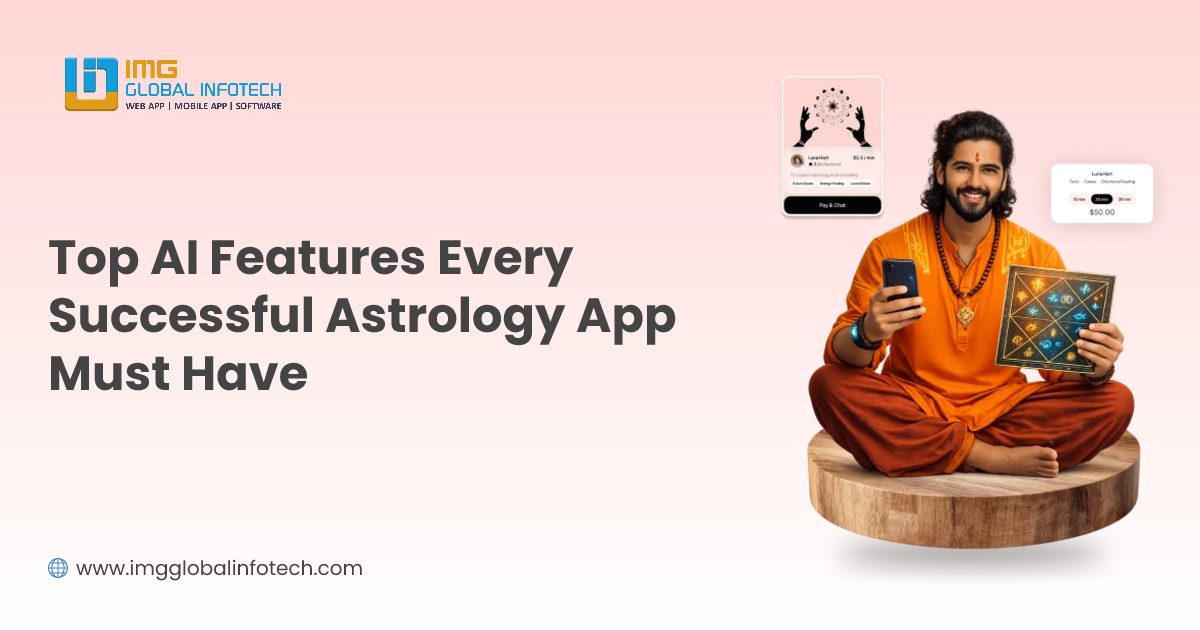 Top AI Features Every Successful Astrology App Must Have
Top AI Features Every Successful Astrology App Must Have
-
 What Are the Top Ecommerce Development Trends to Watch in 2026?
What Are the Top Ecommerce Development Trends to Watch in 2026?
-
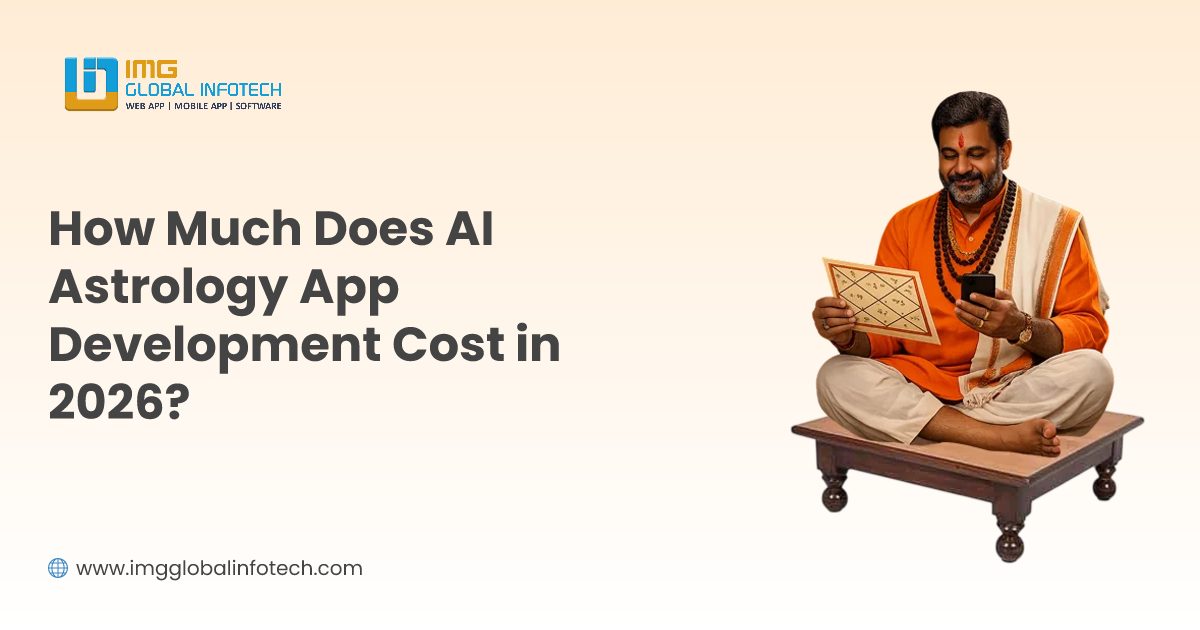 How Much Does AI Astrology App Development Cost in 2026?
How Much Does AI Astrology App Development Cost in 2026?
-
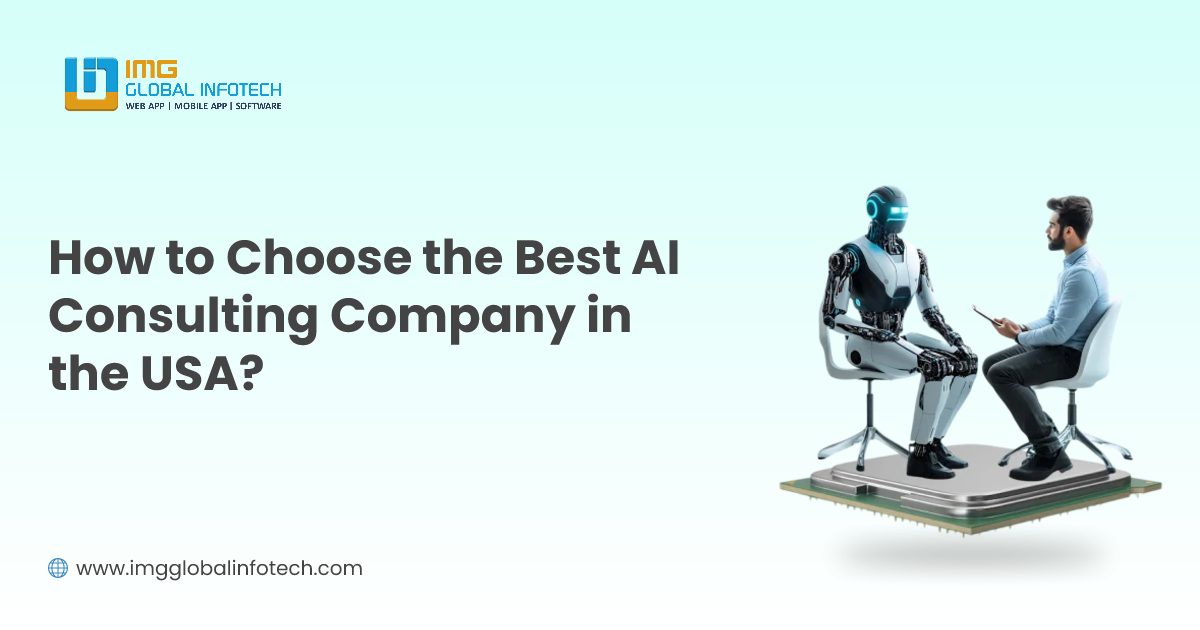 How to Choose the Right AI Consulting Company in the USA?
How to Choose the Right AI Consulting Company in the USA?
Lokesh Kumar is the Digital Marketing Manager & SEO Content Strategist at IMG Global Infotech, a top-rated Web & Mobile App Development Company. With extensive experience in digital marketing, SEO, and content strategy, he specializes in boosting online visibility and driving organic growth for startups, SMEs, and global brands. Lokesh is passionate about creating SEO-friendly, user-centric content that not only ranks but also converts. His deep understanding of digital trends and search algorithms helps businesses thrive in a competitive online space.


